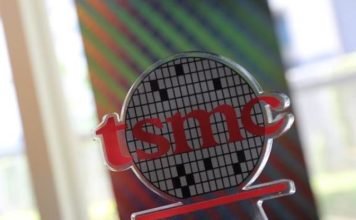Samsung revenue rose 19 percent to a record 77.8 trillion won — powered by demand for 5G smartphones and memory business — during the first quarter of 2022.
 Samsung reported a 51 percent rise in quarterly profit, buoyed by robust data center demand for high-margin memory chips.
Samsung reported a 51 percent rise in quarterly profit, buoyed by robust data center demand for high-margin memory chips.
Samsung’s operating profit rose to 14.1 trillion won ($11.1 billion) for the quarter ended March 31, from 9.38 trillion won a year earlier. That was its highest first-quarter profit since 2018.
Profits in its chip business rose 5.1 percent to 8.45 trillion won, fueled by record sales of server chips in the quarter.
The Memory Business achieved 39 percent increase in revenue at KRW 20.09 trillion, a record-high in quarterly sales for servers amid solid demand and results at the System LSI Business improved sequentially as prices increased. For the Foundry Business, demand was solid across all applications and the Company increased the portion of advanced processes.
SDC (Samsung Display Corporation) revenue rose 15 percent to KRW 7.97 trillion from mobile displays driven by strong sales at major smartphone customers, while for large displays the improvement of production yield of quantum-dot (QD) displays exceeded expectations.
The MX (Mobile eXperience) Business (including smartphone) posted 11 percent increase in revenue to 31.23 KRW trillion thanks to strong sales of Galaxy S22 Ultra, positive responses to new, mass market 5G models and solid sales of Device Ecosystem products including tablets and watches.
Samsung’s Networks business revenue increased 11 percent to KRW 1.14 trillion. Networks Business continued to expand overseas and met domestic 5G expansion needs.
Samsung said it aims to maintain growth momentum by meeting needs for 5G deployments in South Korea and by expanding business in overseas markets. Samsung aims to reinforce leadership position in vRAN (virtualized Radio Access Network) technology
Revenue at the Visual Display Business increased 21 percent to KRW 8.72 trillion with higher sales of premium, high-value products such as Neo QLED and Super Big TVs. The Digital Appliances Business posted a record high quarterly revenue at KRW 6.75 trillion driven by growth of premium products, centering on BESPOKE.
The world’s top memory chip and smartphone maker said demand for server chips is expected to be relatively solid in the second half, but the pace at which component shortages are resolved will need constant monitoring.
Memory chip rival SK Hynix forecast solid demand for server chips but warned that sales to smartphone and personal computer customers was softening due to COVID-19 led lockdowns in China.
In Samsung’s non-memory chip business, the rising price of older chip models as well as improving yields at its chip contract manufacturing business lifted its earnings compared with the previous quarter, analysts said.
Operating profit at Samsung’s mobile and network business slipped about 0.6 percent on-year to 3.8 trillion won in the first quarter.
Samsung ramped up production of its mid-to-low-end Galaxy A series to compete in the segment, while launching its flagship Galaxy S22 series. Samsung increased its smartphone market share to 24 percent during the period from 22 percent a year earlier, said Canalys analyst Sanyam Chaurasia.
The company said it expects chip demand from server clients to remain relatively solid in the second quarter, and the smartphone market is projected to continue to grow in the second half of the year.
However, component shortages and lack of capacity availability at its chip contract manufacturing facilities are also expected to continue.
Analysts said Samsung’s focus on selling more high-margin memory products to prioritise profitability over volume would ultimately limit shipments and help boost DRAM prices later in the year, as would the limited increases in chip production capacity due to delivery delays in chipmaking gear.





